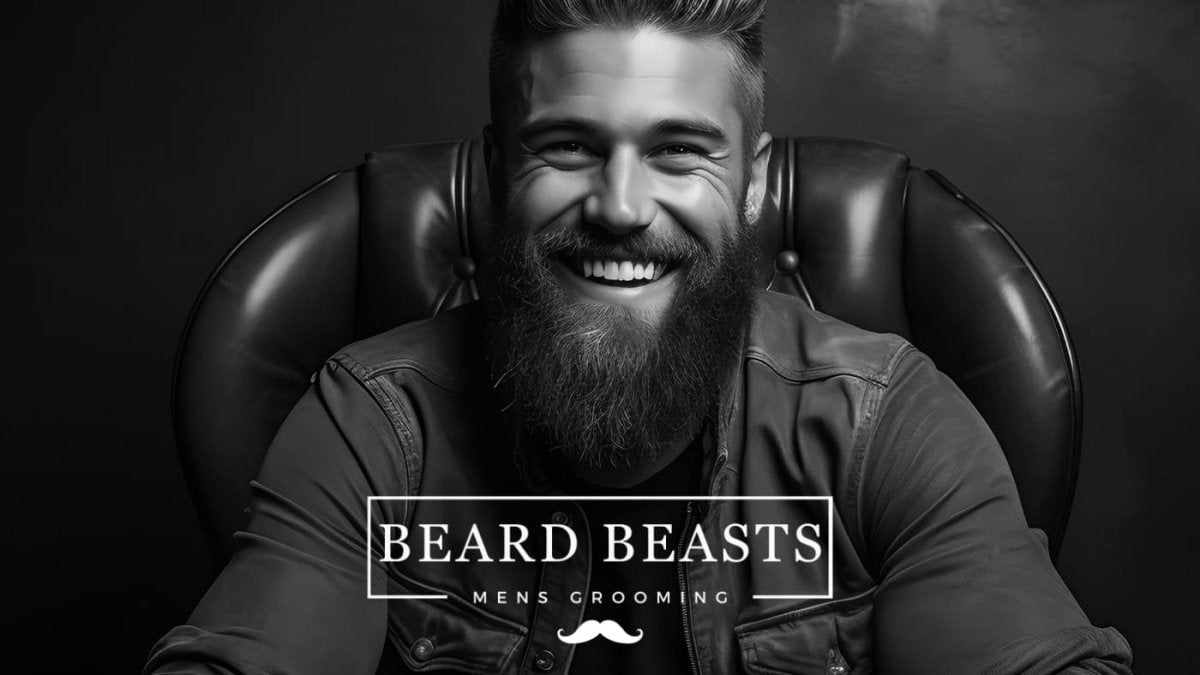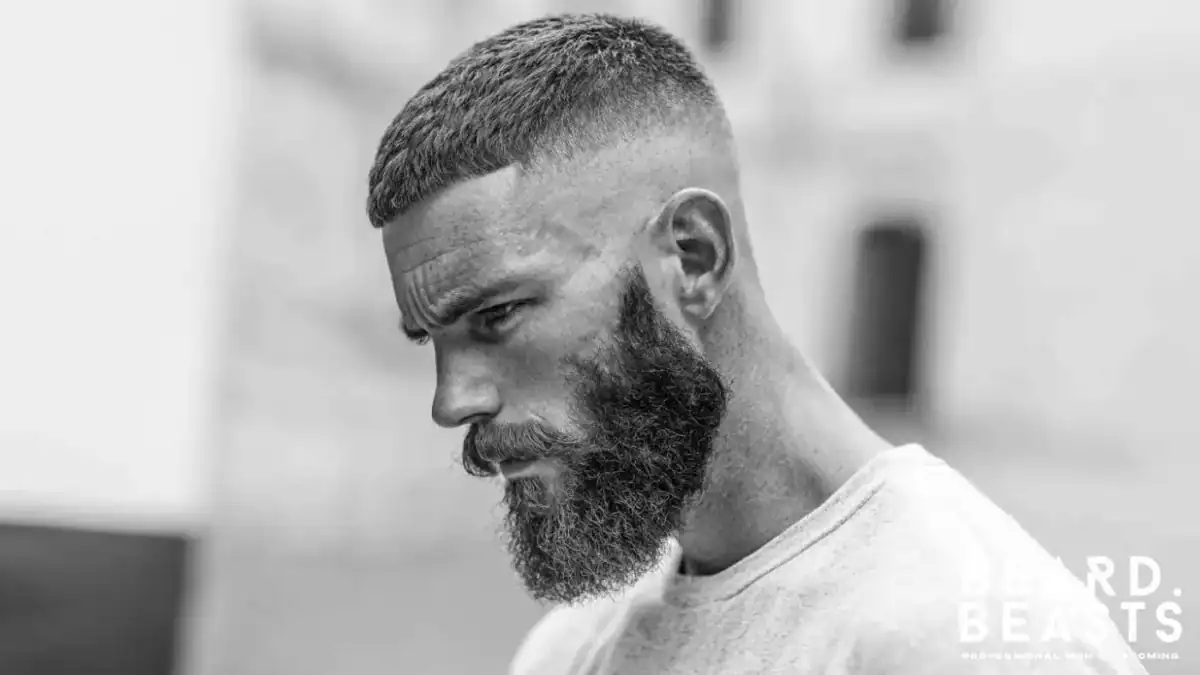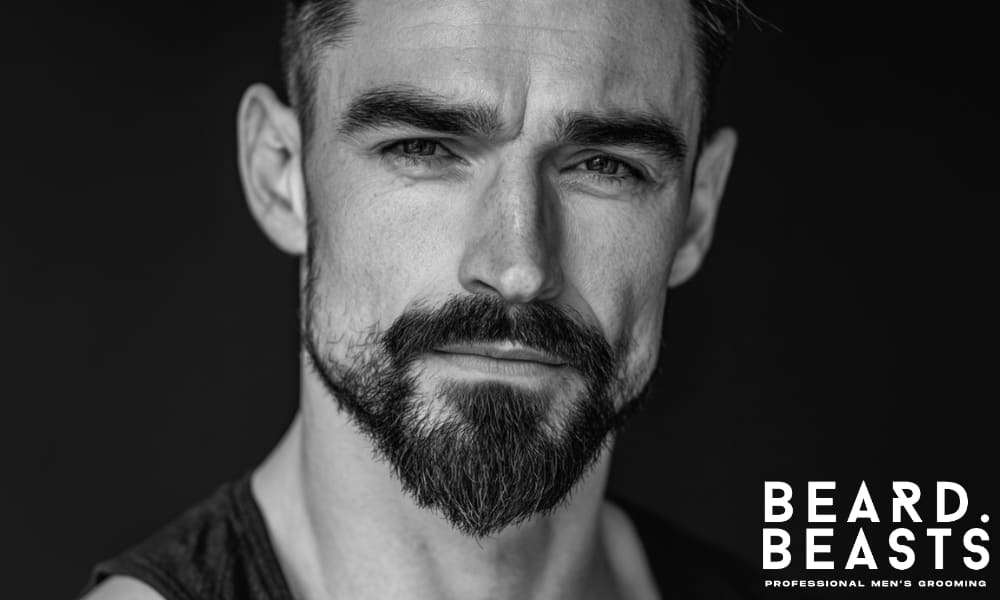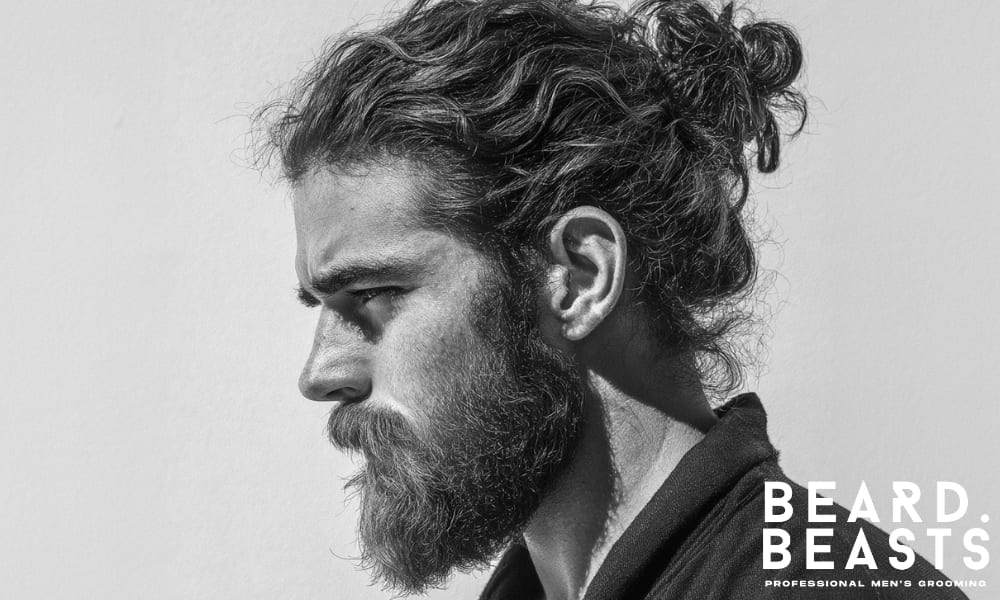In the age-old debate of do men look better with beards?, opinions are as diverse as the styles themselves. From rugged full beards to precise stubble, facial hair has the power to transform a man’s appearance, influencing perceptions of masculinity, attractiveness, and professionalism.
This article delves into the multifaceted world of beards, exploring historical significance, scientific research, fashion trends, and personal stories to understand the impact of beards on men’s lives.
Whether you’re contemplating your first beard or are a seasoned beardsman, this comprehensive guide examines the pros and cons, cultural influences, and personal preferences that shape the beard-wearing experience.
Join us as we navigate through the intricacies of facial hair, encouraging self-expression and highlighting the importance of personal style in the perennial question: do guys look better with beards?
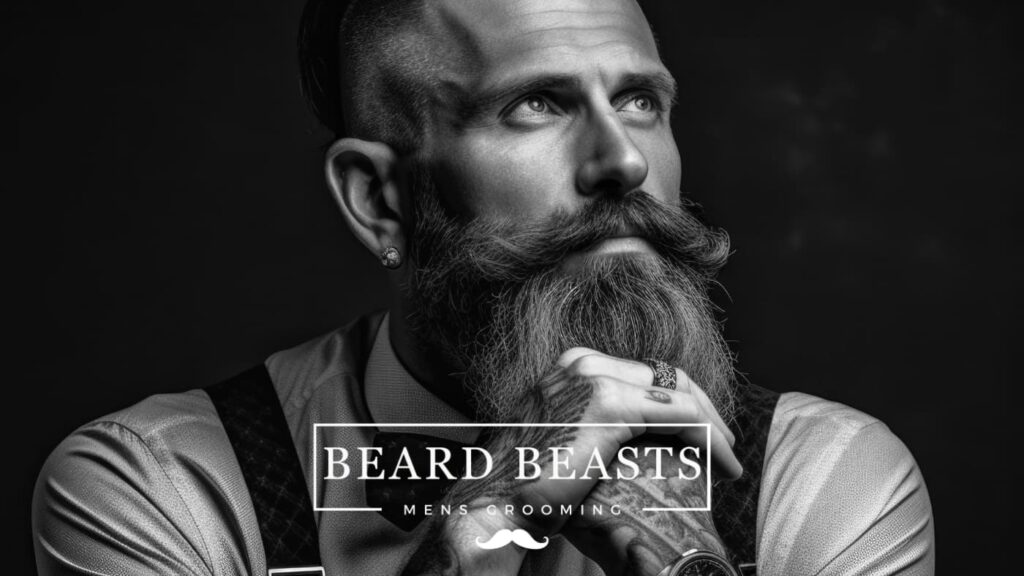
The Historical Significance of Beards
Throughout history, beards have been more than just facial hair; they’ve symbolized wisdom, strength, and status. In ancient civilizations, such as Egypt, beards were so revered that pharaohs wore fake ones to signify their godliness. Fast forward to the Middle Ages, and the beard became a hallmark of honor among knights. However, as we entered the 18th and 19th centuries, beards became associated with rebellion and a lack of cleanliness, leading to a decline in their popularity.
The 20th century saw beards fluctuate in fashion, often influenced by cultural icons and movements. Today, the question of do men look better with beards? often pops up in beauty and style discussions, reflecting a renewed interest in facial hair. This resurgence has brought beards back into the limelight, with many arguing that guys look better with beards, associating them with rugged attractiveness and maturity.
Cultural Variations: The Role of Beards in Different Societies
The role of beards varies significantly across cultures. In some societies, beards are seen as a rite of passage, symbolizing a boy’s transition into manhood. In others, they’re worn for religious reasons, representing devotion and piety. For instance, in many parts of the Middle East, beards are worn as a sign of faithfulness and respect for religious traditions.
In Western cultures, the perception of whether guys look better with beards often depends on current fashion trends and personal preference. Beards are sometimes seen as a sign of non-conformity or a laid-back lifestyle, especially among younger demographics.
The debate around do men look better with beards doesn’t have a one-size-fits-all answer, as preferences vary widely across individuals and cultures. What remains constant, though, is the beard’s ability to make a statement, whether it’s about personal style, cultural identity, or social status.
By understanding the historical significance and cultural variations of beards, we gain insight into why beards have made such a powerful comeback in recent years. Whether you believe guys look better with beards or prefer a clean-shaven look, it’s clear that beards carry a rich history and continue to play a significant role in defining masculinity and personal style across the globe.
Scientific Research: The Impact of Beards on Perceptions
Scientific studies have delved deep into the world of facial hair to answer the burning question: do men look better with beards? These studies reveal that beards can significantly influence how men are perceived by others.
Research shows that men with beards are often seen as more masculine. A study published in the “Journal of Evolutionary Biology” found that women perceive men with heavy stubble and full beards as more masculine than clean-shaven men. This perception of enhanced masculinity is tied to the association of facial hair with maturity and higher testosterone levels.
In terms of attractiveness, the findings are mixed, suggesting that personal preference plays a significant role. However, the same study noted that men with heavy stubble were rated as the most attractive overall. This indicates that while beards can be seen as a sign of attractiveness, the level of facial hair that is considered most appealing can vary.
Beards also impact perceptions of dominance and maturity. Men with beards are often viewed as more dominant, a trait linked to the primal association of facial hair with strength and aggression. Furthermore, beards are believed to signify maturity, as they physically distinguish men from boys, signaling age and experience.
Another interesting insight from scientific research is how beards affect perceptions of trustworthiness and competence. A study from the “Journal of Business and Psychology” suggests that men with beards are perceived as more credible and with higher expertise in professional settings than their clean-shaven counterparts.
The question of do guys look better with beards? is complex and influenced by various factors, including cultural norms, personal preferences, and biological predispositions. While scientific studies provide evidence that beards can enhance perceptions of masculinity, attractiveness, dominance, and maturity, the ultimate decision to grow a beard should consider individual style and how one wishes to be perceived. Whether you choose to sport facial hair or not, the key is to wear it with confidence.
Beards in the Lens of Modern Fashion and Trends
In the ever-evolving world of fashion, beards have carved out a significant niche. The current beard trends showcase a range of styles, from the full, bushy beard that speaks volumes of ruggedness to the precise, sculpted stubble that adds a touch of sophistication. The “hipster beard,” once a hallmark of alternative subcultures, has found its way into mainstream fashion, symbolizing a blend of individuality and style awareness.
Globally, beard trends vary, reflecting cultural preferences and climatic conditions. In warmer regions, shorter, well-groomed beards are popular for comfort, while colder areas might see a preference for fuller beards that offer an additional layer of warmth. The key to a fashionable beard in any climate is maintenance, highlighting the importance of grooming to achieve the desired look.
Celebrity Influence: How Public Figures Shape Our View on Beards
Celebrities play a pivotal role in shaping public perceptions about beards, often influencing what is considered attractive or fashionable. Actors, sports stars, and musicians who choose to sport beards often set trends that fans and followers are eager to emulate. When a well-known figure adopts a particular beard style, it can quickly gain popularity, driving changes in societal norms around facial hair.
The influence of celebrities has helped to normalize beards in professional and formal settings, where they were once seen as unconventional. Icons from various fields showcase the versatility of beards, demonstrating that facial hair can complement a wide range of looks, from the red carpet to the boardroom.
The debate around do men look better with beards? often sees a surge in interest when a celebrity makes a dramatic facial hair change. Such moments provide a platform for discussion on social media and in fashion magazines, further cementing the beard’s place in modern style discussions.
Beards continue to be a significant trend in men’s fashion, with their popularity influenced by cultural shifts, climatic conditions, and celebrity endorsements. The question of do guys look better with beards? remains subjective, but the trend’s endurance suggests that beards, in all their varied styles, are here to stay. Whether following the latest trend or setting one’s own, the modern beard is a statement of personal style, confidence, and masculinity.
Personal Perspectives on Beards
Many men view their beards as more than just facial hair; they see them as extensions of their personality and style. Testimonies from those who have embraced the bearded lifestyle often speak of significant transformations. Some report increased confidence and a stronger sense of identity. Others talk about the beard as a journey of self-discovery, experimenting with different lengths and styles to find the one that best suits their face and personality. These personal stories highlight the impact a beard can have on an individual’s life, underscoring the idea that, for many, the decision to grow a beard is about more than just aesthetics.
Survey Insights: Summarizing Public Opinion on Bearded Men
Surveys on public opinion about beards often reveal a diverse range of attitudes. While some studies suggest that bearded men are perceived as more mature, masculine, and wise, others indicate a preference for the clean-shaven look, especially in professional settings. The mixed responses underscore the subjective nature of attractiveness and the influence of cultural and personal preferences. Despite these variances, the growing acceptance and popularity of beards in many parts of the world indicate a significant shift towards embracing facial hair as a legitimate form of personal expression.
Beard or No Beard: Factors Influencing Individual Preferences
The decision to grow a beard or remain clean-shaven is influenced by various factors. Personal taste plays a crucial role, with some men preferring the look and feel of facial hair, while others opt for the simplicity and cleanliness of a shaven face. Lifestyle and profession can also impact this choice; for instance, men working in industries that value a more traditional appearance might lean towards being clean-shaven. Health and skin conditions, such as sensitivity or acne, may also dictate whether a man decides to grow a beard. Ultimately, the decision is a personal one, reflecting an individual’s style, comfort, and values.
The question of do men look better with beards? elicits a wide range of opinions, shaped by personal experiences, societal norms, and individual preferences. Beards can be powerful symbols of identity and confidence for some, while for others, the clean-shaven look is more appealing. Whether one chooses to grow a beard or not, the most important factors are personal satisfaction and comfort with one’s appearance.
Practical Advice for Aspiring Beardsmen
The journey to an impressive beard begins with selecting a style that complements your face shape. Experts suggest that oval face shapes can pull off most beard styles, while those with round faces may opt for longer, fuller beards to elongate their appearance. Square-faced individuals can soften their jawline with a beard that’s fuller on the chin and shorter on the sides. If you have a rectangular face, try a beard that’s fuller on the sides and shorter at the bottom to add width to your face. The key is balance; your beard should enhance your natural features, not overpower them.
Maintenance and Grooming: Best Practices for a Healthy, Attractive Beard
A well-maintained beard is a cornerstone of its appeal. Regular washing and conditioning are crucial to keep your beard clean and soft. Invest in a good quality beard oil to moisturize the skin underneath and prevent flakiness. Trimming is essential, even if you’re growing it out. Use a beard boar bristle brush daily to train the hair to grow in your desired direction and to evenly distribute oils. Remember, a neat beard is often perceived as more attractive and professional.
Common Beard Problems and Solutions: Addressing Itchiness, Dandruff, and More
Itchiness and beard dandruff (beardruff) are common issues that can deter men from growing a beard. These problems are often due to dry skin. Hydrating the skin and beard with oils and balms can alleviate beard itch. Exfoliating the skin under your beard once a week can help prevent beard dandruff by removing dead skin cells. If you experience severe itching or skin conditions, consider consulting a dermatologist for specialized products or treatment.
Growing a beard can significantly alter your appearance, potentially enhancing your masculinity and attractiveness. However, achieving the best look depends on choosing the right style for your face, maintaining diligent grooming habits, and addressing any skin issues that arise. By following these practical tips, aspiring beardsmen can ensure their facial hair looks great and feels healthy, making the question of do guys look better with beards? a resounding yes for those who choose to embrace their bearded potential.
The Social and Psychological Impact of Wearing a Beard
Beards can significantly influence first impressions, shaping how people perceive one’s personality, status, and competence upon first meeting. Studies suggest that men with beards are often seen as more mature, wise, and with a higher status compared to their clean-shaven counterparts. However, perceptions can vary based on the style and neatness of the beard. A well-groomed beard may convey professionalism and confidence, while an unkempt beard might suggest a lack of care. This initial judgment underscores the importance of grooming in managing how beards impact perceptions in various social settings.
Beards in the Workplace: Professionalism and Discrimination
In the professional realm, the acceptability of beards has evolved. Today, many workplaces recognize beards as expressions of individuality and personal style. However, perceptions of professionalism can still vary, with some industries embracing beards more than others. There’s a growing understanding that appearance, including facial hair, should not detract from an individual’s skills and competencies. Despite this progress, some bearded men may face discrimination or bias, especially in professions with strict grooming standards. Navigating these challenges requires a balance between personal expression and professional expectations.
The Confidence Factor: How Sporting a Beard Can Boost Self-Esteem
For many men, growing a beard is a journey of self-discovery that can significantly boost self-esteem and confidence. The decision to grow and style a beard allows men to assert control over their appearance, often leading to a more positive self-image. This confidence can translate into various aspects of life, from enhanced social interactions to improved performance in professional settings. The sense of pride and identity that comes with beard growth demonstrates the profound psychological impact of embracing one’s facial hair.
The social and psychological implications of wearing a beard are complex and multifaceted. While beards can influence first impressions and perceptions of professionalism, they also offer men a unique opportunity to enhance their self-esteem through personal grooming choices. Whether beards make men look better is subjective and varies across different social and professional contexts.
The Verdict: Do Men Look Better with Beards?
The debate over whether men look better with beards is as old as time, with compelling arguments on both sides. Beards have been shown to enhance perceptions of masculinity, maturity, and dominance, potentially offering men a boost in confidence and social status. Scientific studies and cultural trends suggest that, in many cases, beards can indeed enhance a man’s attractiveness and are often associated with positive traits.
However, the appeal of beards is not universal. Preferences for facial hair vary widely among individuals, influenced by personal taste, societal norms, and even evolutionary factors. Some find beards to convey wisdom and virility, while others may perceive them as unkempt or unprofessional, depending on the context and grooming.
Personal Choice and Cultural Influence: Why the Answer Isn’t One-Size-Fits-All
The question of do guys look better with beards? cannot be answered definitively due to the vast diversity in individual and cultural preferences. What’s considered attractive or appropriate in one culture may not hold the same truth in another. Moreover, personal choice plays a significant role in the decision to grow a beard. For some men, a beard is a cherished expression of their identity, while for others, a clean-shaven face better suits their lifestyle or professional demands.
Encouraging Self-Expression: The Importance of Personal Preference and Style
Ultimately, the decision to grow a beard should be guided by one’s own preference and comfort rather than adhering strictly to societal expectations or trends. Embracing one’s personal style and expressing individuality through facial hair (or the lack thereof) is a form of self-expression and authenticity. The importance of grooming and maintaining whichever style one chooses cannot be overstated, as it reflects one’s attitude towards personal care and presentation.
In answering the question do men look better with beards?, it’s clear that beauty and appeal are in the eye of the beholder, shaped by personal, cultural, and social factors. Whether or not a man chooses to grow a beard should be a reflection of his own style, values, and the image he wishes to project. Encouraging self-expression and respecting individual choices in this matter promotes a broader understanding of attractiveness and masculinity.

